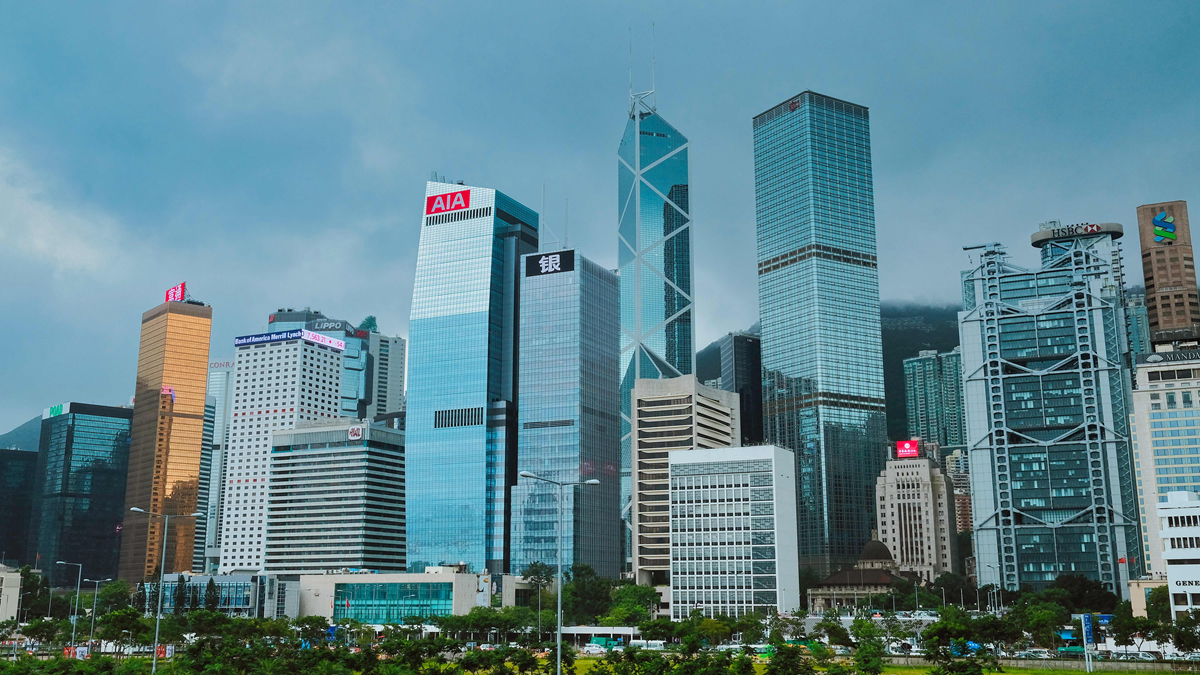
A view of Hong Kong. /CFP
A view of Hong Kong. /CFP
Editor's note: Alexandr Svetlicinii is an associate law professor at the University of Macau, where he also serves as program coordinator for the Master of Law in International Business Law in English Language course. The article reflects the author's opinions and not necessarily the views of CGTN.
On September 27, 2021, the Hong Kong Special Administrative Region (HKSAR) of the People's Republic of China (PRC) issued a report on the region's business environment signaling to the world that it is open for business. The present note highlights the specific features of Hong Kong's legal system, which under the "One Country, Two Systems" principle, creates a favorable environment for international business.
Grounded on Article 31 of the PRC Constitution, the fundamental principles of the HKSAR's legal system are embedded in the HKSAR Basic Law. The law guarantees the protection of private property, including the ownership of enterprises and investments from outside the region. The HKSAR Basic Law also provides that no foreign exchange control policies are applied in the region and ensures the free convertibility of the Hong Kong dollar and free flow of capital in and out of the region.
According to the report, Hong Kong currently maintains 22 investment promotion and protection agreements with 31 foreign economies, providing further assurances for the protection of foreign investments.
In terms of international trade, Hong Kong is a separate customs territory and a distinct member of the World Trade Organization. It maintains its status as a free trade port and safeguards the free flow of goods, assets and capital. Hong Kong benefits from closer integration with the Chinese mainland through the Closer Economic Partnership Arrangement, the development of the Guangdong-Hong Kong-Macao Greater Bay Area, and the adjacent cities of the Guangdong Province.
Following the principle of "One Country, Two Systems," the HKSAR Basic Law ensures the continuity and stability of the HKSAR legal system based on common law and remaining largely intact following the PRC's resumption of sovereignty over the region in 1997. The laws previously in force in Hong Kong and regulating business transactions, including the common law, rules of equity, ordinances, subordinate legislation and customary law were largely maintained.

Flags flutter next to the Hong Kong stock exchange, Hong Kong, China, August 9, 2018. /Getty
Flags flutter next to the Hong Kong stock exchange, Hong Kong, China, August 9, 2018. /Getty
The unique positioning of Hong Kong as a business and financial hub of Asia, the use of English as one of the official languages and the availability of superb legal services allowed Hong Kong to become a world-renowned dispute resolution center. Hong Kong's Arbitration Ordinance is based on the UNCITRAL Model Law on International Commercial Arbitration.
In recent years, Hong Kong has also enhanced its attractiveness as a place for resolving disputes between Chinese companies and their business parties from foreign countries, including those covered by the Belt and Road Initiative.
Thus, the 2019 Arrangement between the Chinese mainland and the HKSAR provides for mutual assistance in court-ordered interim measures in aid of arbitral proceedings by the courts on the Chinese mainland. This arrangement made Hong Kong the only jurisdiction outside of the Chinese mainland that can benefit from interim measures of protection by the Chinese mainland courts.
The 2020 Supplemental Arrangement Concerning Mutual Enforcement of Arbitral Awards between the Chinese mainland and the HKSAR further facilitated the recognition and enforcement of Hong Kong-made arbitral awards on the Chinese mainland.
The HKSAR also hosts a network of arbitration institutions, including the Hong Kong International Arbitration Centre, the International Court of Arbitration of the International Chamber of Commerce, the China International Economic and Trade Arbitration Commission, the China Maritime Arbitration Commission, and the eBRAM International Online Dispute Resolution Centre. The 2020 Pilot Scheme on Facilitation for Persons Participating in Arbitral Proceedings in Hong Kong further relaxed the immigration requirements for professionals involved in arbitration proceedings.
The business environment report issued by the HKSAR government could also be viewed as an indirect response to the U.S. "Hong Kong Business Advisory" of July 16, 2021, which aimed to discourage foreign companies from doing business in Hong Kong. It should be noted that the bulk of these warnings was related to the U.S. secondary sanctions, which apply to persons who choose to do business with the U.S.-sanctioned entities from the HKSAR and the Chinese mainland.
At the same time, the U.S. business community in the region, represented by the American Chamber of Commerce in Hong Kong, acknowledged that "Hong Kong has one of the best-developed infrastructures in Asia, it has an internationally recognized system of commercial law, it has a more open and sophisticated digital infrastructure than many of its Asian peers."
Furthermore, earlier in 2021, China has adopted the Anti-Foreign Sanctions Law, which aims to counter foreign sanctions, especially imposed through hegemony and power politics, earlier in 2021. At the same time, the National People's Congress has postponed applying this law in Hong Kong, thus allowing the region to preserve its openness and attractiveness to foreign trade and investment.
(If you want to contribute and have specific expertise, please contact us at opinions@cgtn.com.)

